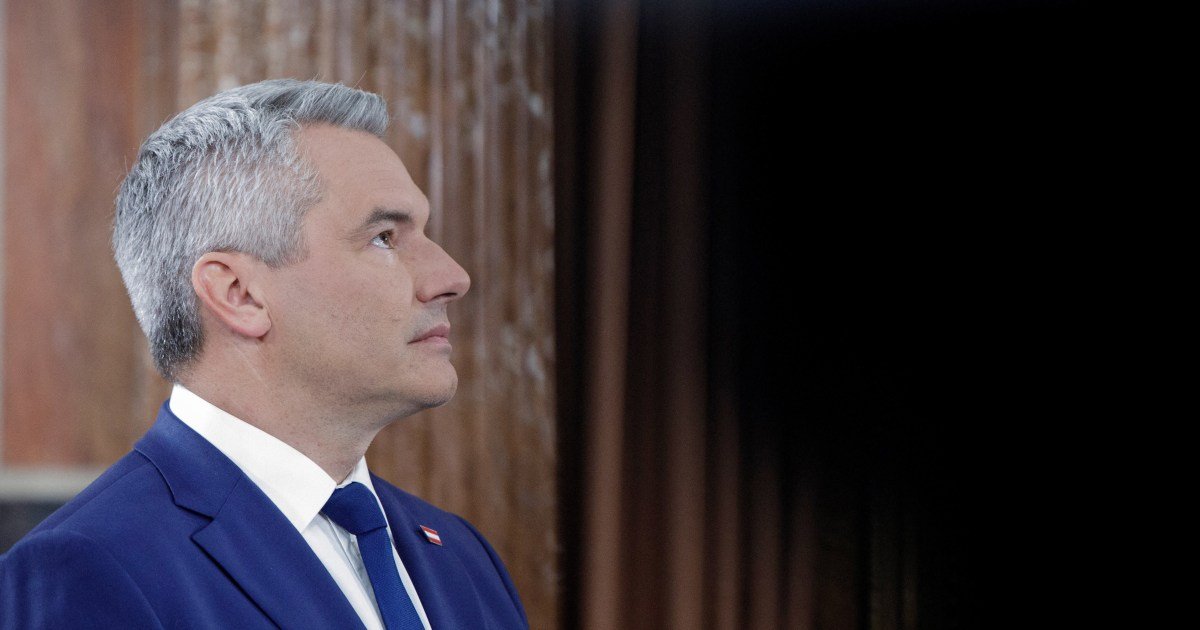The leadership of Austria’s ruling conservatives held a crisis meeting on Sunday to choose a successor to Chancellor Karl Nehammer, who announced his resignation on Saturday as attempts to form a coalition government without the far right failed.
More than two hours after the meeting began, several Austrian media reported that the general secretary of the People’s Party (OVP), Christian Stocker, 64, would take over as party leader on an interim basis. There was no immediate comment from the party.
The surprise collapse of tripartite and then bipartisan talks aimed at forming a centrist coalition that could serve as a bulwark against the far-right Freedom Party (FPO), after the FPO came first in September’s parliamentary elections, leaves the President Alexander Van der Bellen with few options.
An early election with growing support for the Eurosceptic and Russia-friendly FPO or a radical change in which Van der Bellen tasks FPO leader Herbert Kickl with forming a government are now the most likely options, with a Limited room for alternatives or play time.
“It is not an easy situation,” Markus Wallner, governor of Vorarlberg, the westernmost of Austria’s nine provinces, told reporters before the meeting of OVP leaders in the chancellor’s office.
“I think we need to do everything we can now to avoid spiraling into a national crisis.”
Wallner said he opposed an early election because it would delay the arrival of a new government by months. The OVP governors are part of the leadership.
Nehammer insisted during and after the election campaign that his party would not govern with Kickl because he was too much of a conspiracy theorist and posed a security risk, while much of Kickl’s party was trustworthy.
Nehammer’s departure makes it likely that whoever succeeds him will be more open to a coalition with the FPO, which is formally allied with Hungarian Prime Minister Viktor Orban’s Fidesz party.
The FPO won the September election with around 29% of the vote, and opinion polls suggest its support has only grown since then, widening its lead over the OVP and the Social Democrats to more than 10 percentage points. while his support has declined.
The OVP and FPO overlap on several issues, particularly in their tough stance on immigration, to the point that the FPO has accused the OVP of stealing its ideas.
The two governed together from late 2017 to 2019, when a covert video scandal involving the then FPO leader caused their coalition to collapse. At the state level, they govern together in five of nine states, including Vorarlberg, from the OVP’s moderate Wallner.
The national dynamic is now different because if they formed an alliance, the OVP would for the first time be a junior partner of the FPO, making the position of OVP leader difficult and undesirable for many.
After initial media reports that household names such as former party leader Sebastian Kurz, who led the last coalition with the FPO and has since been convicted of perjury, could become OVP leader, Austrian media They reported overnight that they were no longer in the race.
That left lesser-known figures such as the new secretary general of the Chamber of Commerce, Wolfgang Hattmannsdorfer, 45.
Meanwhile, the FPO insisted on its message.
“Austria needs a Chancellor Kickl now,” he said in X.








